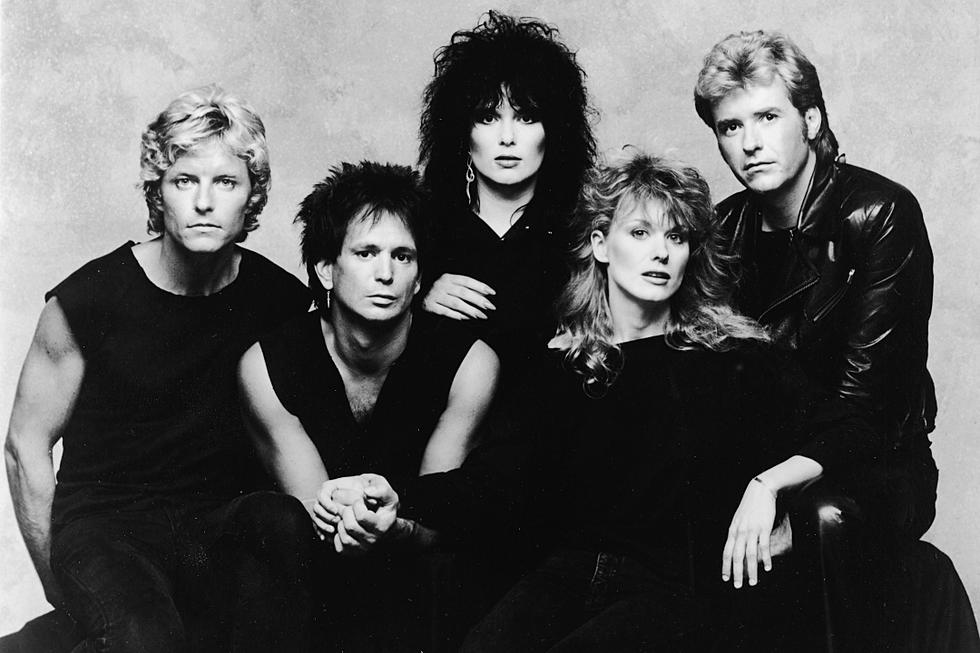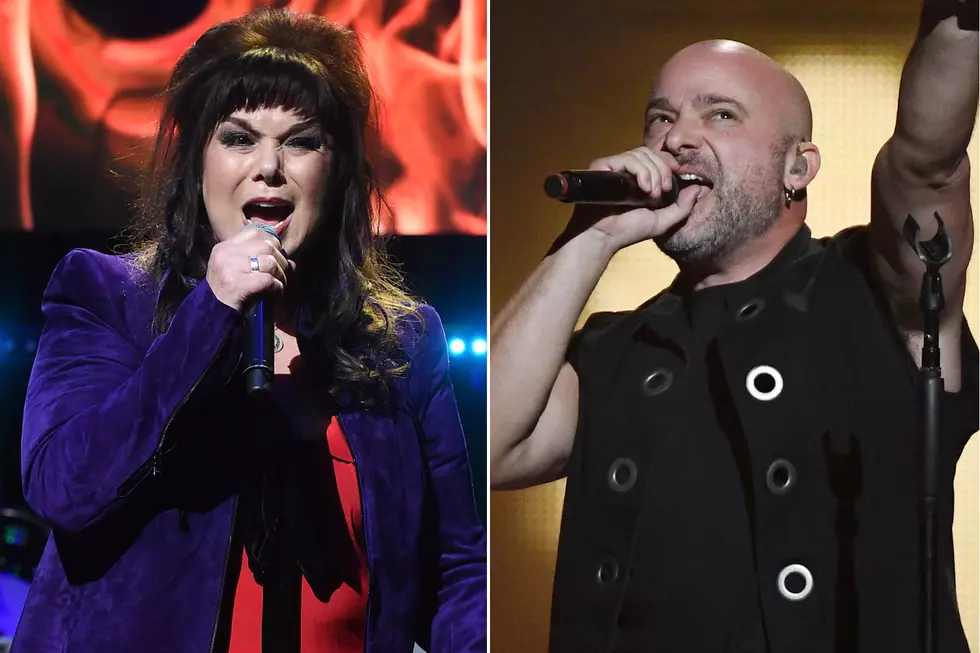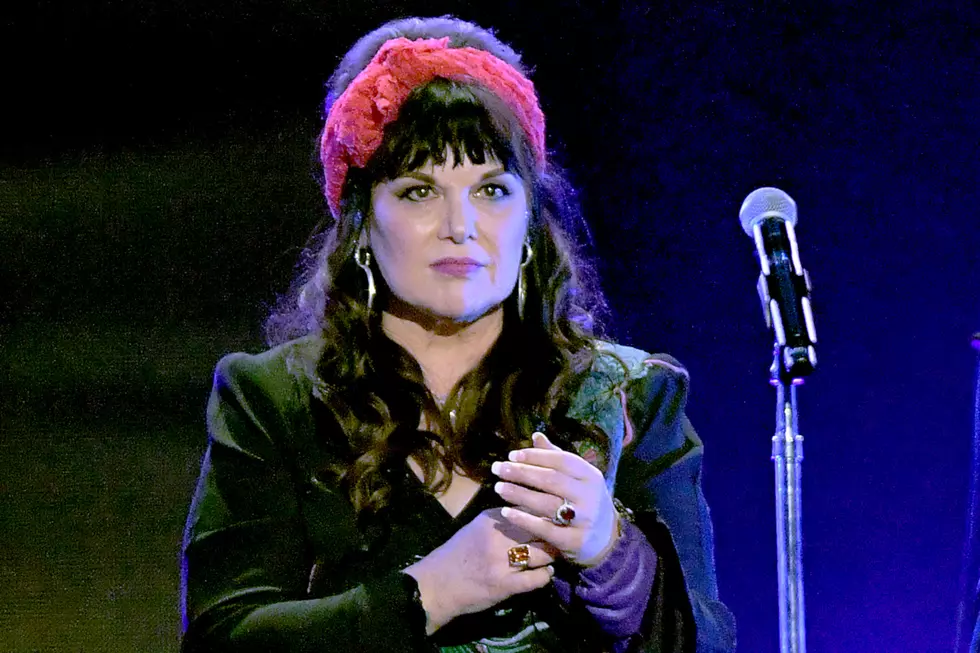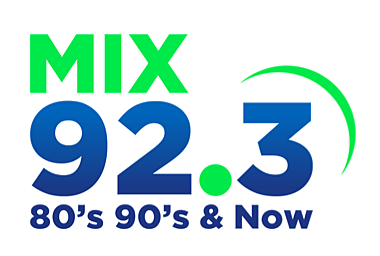
How Heart Went Mainstream With Their Self-Titled Hit Album
Heart was at a serious career crossroads by the time 1984 rolled around. They were still popular in rock circles, but lineup changes and shifting musical trends had put a damper on their career.
Capitol Records stepped in after Heart was dropped by their previous label following the disappointing performance of 1983's Passionworks. But this new contract came with some rather strict stipulations according to Ron Nevison, who ended up producing both their self-titled label debut and its 1987 follow-up, Bad Animals.
"You have a situation where [label president] Don Grierson over at Capitol picked them up but said, 'Let me just say this: I love you guys, and I’m willing to sign you, but you have to be prepared to mutually agree on the material and mutually agree on the producer,' or he wouldn’t have signed them," Nevison tells UCR's Matt Wardlaw.
Translation: Among other things, Heart would have to use outside songwriters, something that principal members and lyricists Ann and Nancy Wilson had always avoided. And that compromise was just the tip of the iceberg, as their songwriting partner Sue Ennis recalled in the book Heart: In the Studio.
The band also switched management firms, "who were figuring out the marketing of the band, the look of the band, the videos," Ennis recalls. "A big machine was starting to crank up on behalf of Heart, and I think Ann and Nancy felt conflicted about it. On one hand, they were happy to be back among the wanted, but as the process went on, and it became clear that a lot of the decisions that were being made about how to market them were being made by others."
This would come into play later, as Heart went to make videos for these new songs. But the process of putting together the album wasn't quite so draconian, Nevison said in Heart: In the Studio. "When I first heard Heart's self-penned demos for the album, while I did think they had a lot of great material, I just wasn't sure about the singles," he says. "I had first listened to see what they had, and what was missing, and then started filling in the gaps. I didn't just go out and find songs for them until I determined what they had."
Among the Heart-written tunes that eventually made the cut include "The Wolf," a ferocious hard rocker with a jagged guitar solo and Robert Plant-esque Ann Wilson lead vocals; the contemporary AC ballad "Nobody Home"; and the underrated, blues-tinged "What He Don't Know." But these very fine songs were overshadowed by Heart's singles, all of which – save for the playful, pop-leaning "Never" – were by non-band writers.
Watch Heart's Video for 'What About Love?'
Nevison was integral to the digging up these tracks. Grierson gave him the power ballad "What About Love?" directly, while the producer says he happened to find the flashy, hard-charging "If Looks Could Kill" on the label president's desk and nabbed it for Heart (reportedly before Tina Turner could record it). "These Dreams" was discovered via his manager Michael Lippman, who also happened to manage Elton John's songwriting partner Bernie Taupin.
"Bernie left me a cassette when I was heading up to Seattle to work with [Heart] and rehearse with them," Nevison tells UCR. "[The cassette had] a bunch of songs that he had written with Martin Page. One of them was 'These Dreams.' Another one was [Starship's] 'We Built This City,’ which I hated." He laughs. "So 'These Dreams' was on there and I liked it. I thought, 'I’m looking for a song for Nancy to sing, and she’s a really dreamy kind of girl,' and I thought it would be perfect for her, and of course it was."
"These Dreams" ended up becoming Heart's first No. 1 single, even though Nevison figured it would just be another album track. However, the success of "What About Love?" and "Never" – which hit No. 10 and No. 4, respectively, on the Billboard Hot 100 – made releasing the song as a single a no-brainer. In Nevison's eyes, it was also a surefire hit.
"I’ll never forget that I was in Hawaii on vacation," he says. "It was a typical Tuesday morning where you find out how many radio station adds you got. In those days, you called up the record company or the manager and there was, like, 123 CHR [contemporary hard rock] stations that added 'These Dreams,' so I knew that morning that it would be a Top 5 single."
"These Dreams remained a Heart set list staple even though one of its most defining characteristics, Nancy's slightly imperfect vocal, came about accidentally.
"When we cut the track, either she had a cold or she was struggling with the whole thing," Nevison tells UCR. "On the lyric, 'Every second of the night,' you know, it cracked a little bit, and I liked it. When we did the vocal [on the album version], it was much cleaner, so I comped in a couple of those words that cracked up a little bit, from the original vocal. Then we had a break for Christmas and she comes back and she says, 'My mom says my voice is cracking up: Can you fix that?' I went, 'Oh no, please — that’s emotion and that’s really good!' I talked her into keeping it."
Watch Heart's Video for 'These Dreams'
Released on July 6, 1985, Heart was buoyed by these big singles to more than five million in sales. But this success was bittersweet for the band: Heart certainly put their own stamp on other people's material – as Ennis put it in Heart: In the Studio, "Ann had sung her share of cover tunes over the years in bar bands, so she could tackle any song, throw herself into it and make it her own" – but having big hits with other people's words was still tough to take.
"Music became less understandable in the wake of the new MTV era. You weren’t supposed to be anything other than a pop star, to not go deeper than that," Ann told Rolling Stone in 2012. "It was really strange. It was suffocating, image-wise. What you could talk about in a song changed; if you were misunderstood, you were really misunderstood – taken literally.
"That’s why Nancy and I felt so stifled," she added, "yet that’s our biggest commercial success. But that’s the way shit goes when you sell millions of records but you’re dying inside."
Nancy Wilson also views the '80s as an extremely odd time in hindsight, especially musically. "All of the digital technology was coming up at the time and you could hook gear up to other gear — I think it was just so ego-driven, all of the stuff that you could connect, all of the actual technology that was so new and everybody had to use every single piece of it," she told Cleveland Scene.
"Like there was one day in the studio, where the whole day, we were auditioning one snare drum hit sample. We were auditioning snare samples all day long!" Nancy added. "That just shows you exactly what that was all about. It was very self-indulgent."
Yet Heart persevered through this time, and eventually was able to reclaim their status as songwriting legends. In concert, they'd come to fully embrace Heart songs such as "What About Love?" and "These Dreams" – and make these tunes completely their own.
Heart’s Ann Wilson Discusses the Rise of the Seattle Scene
More From Mix 92.3










